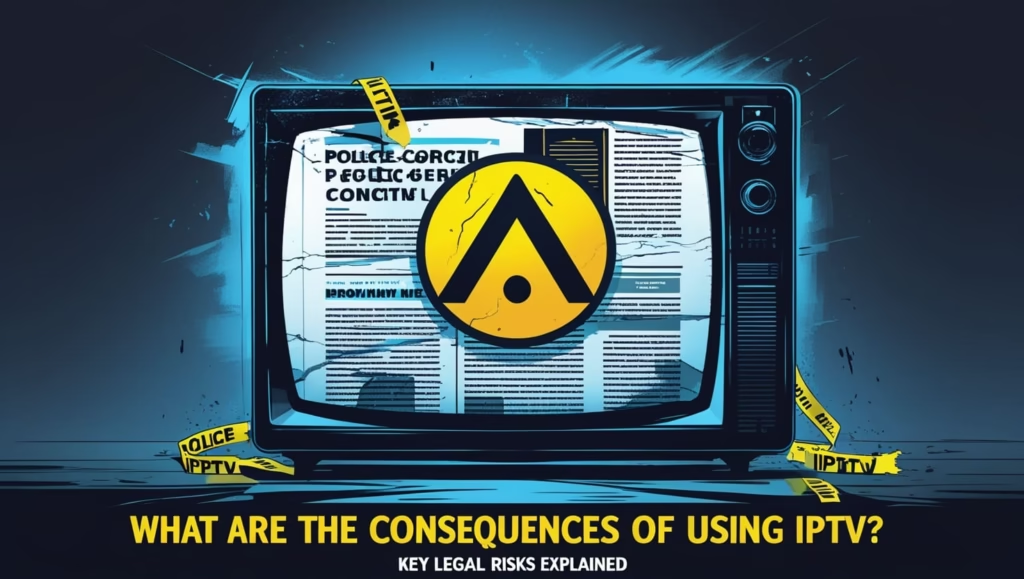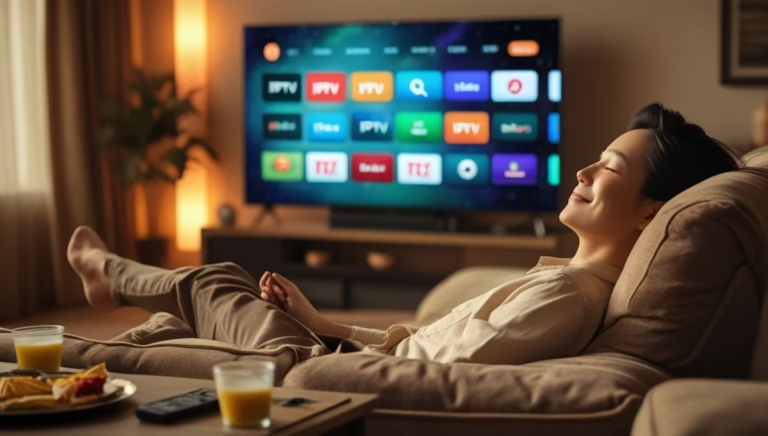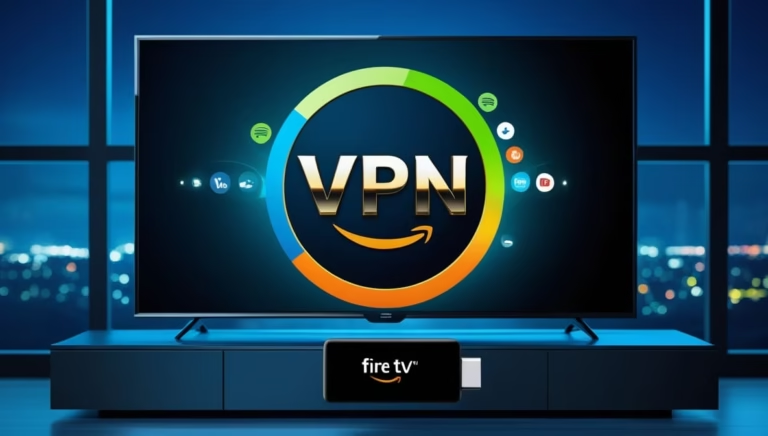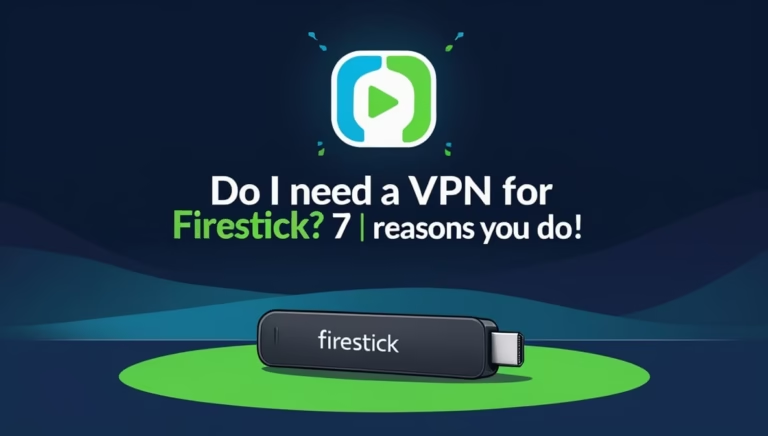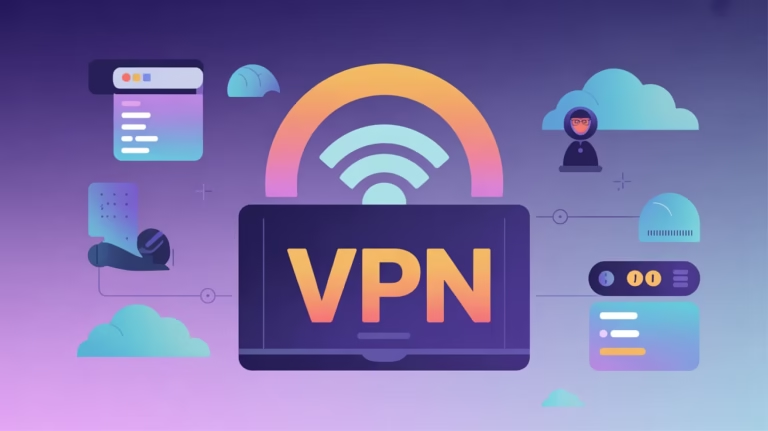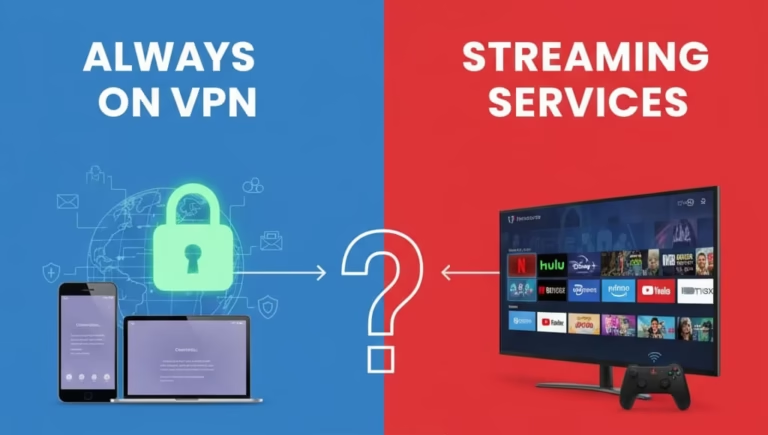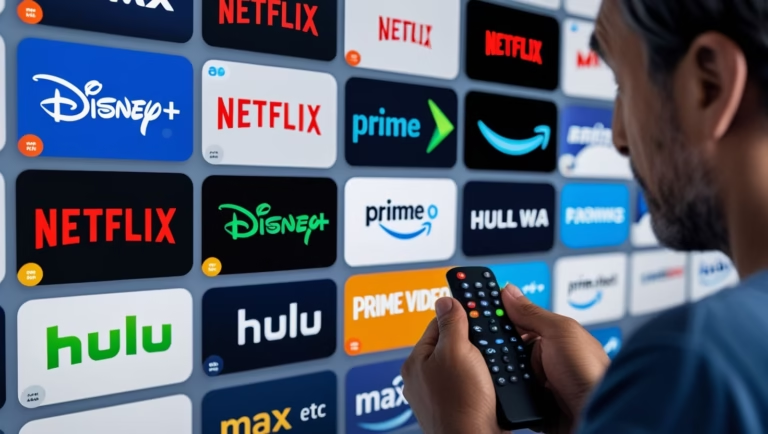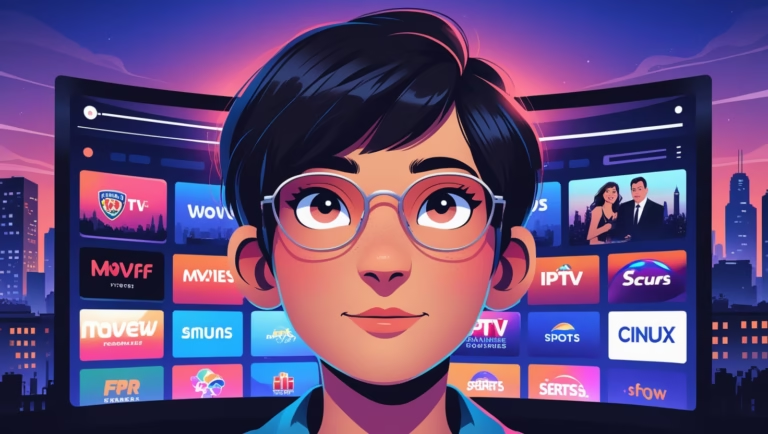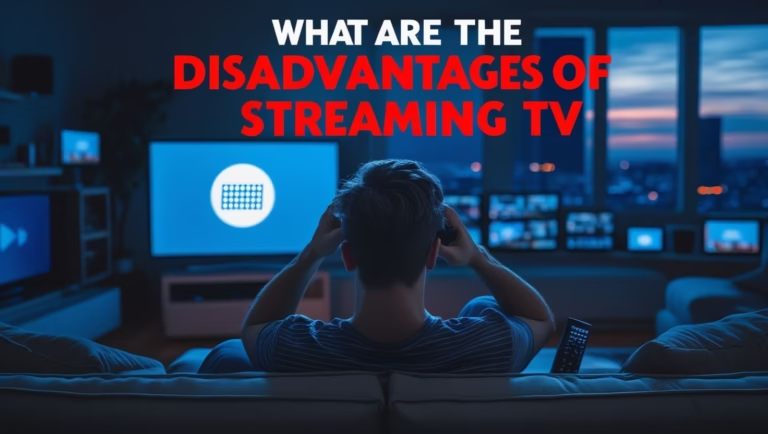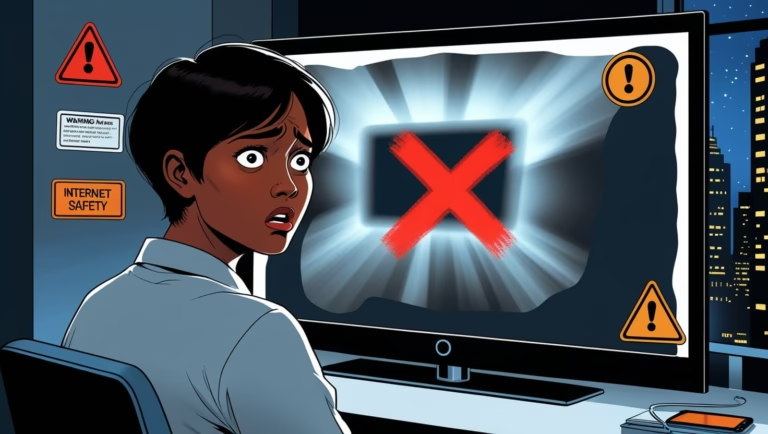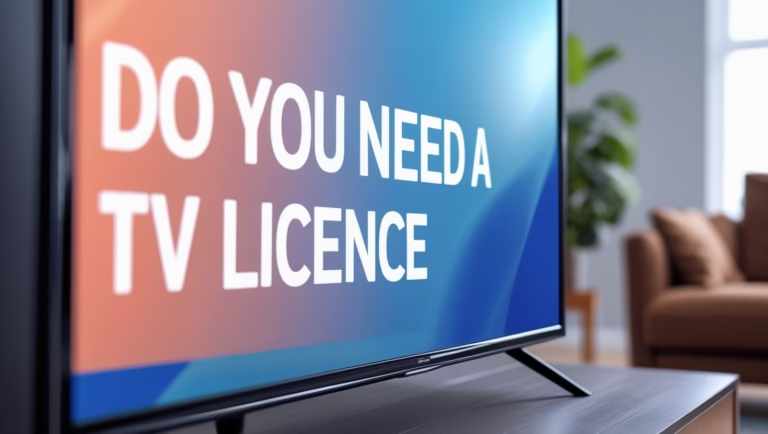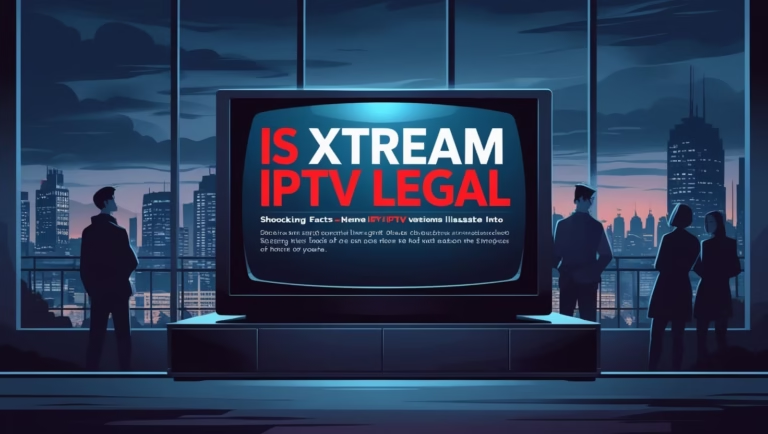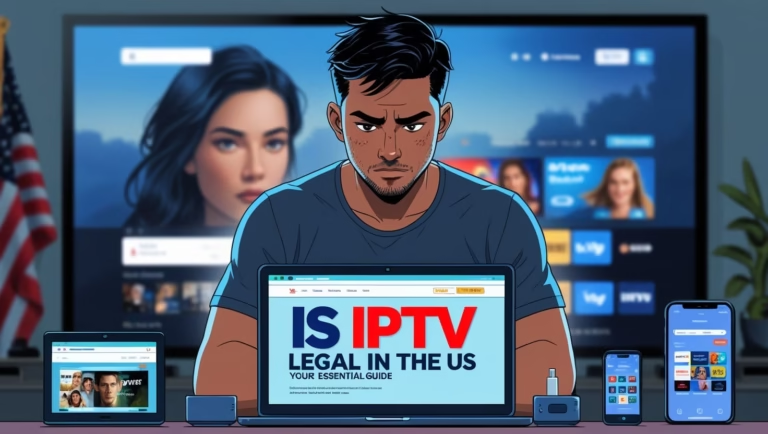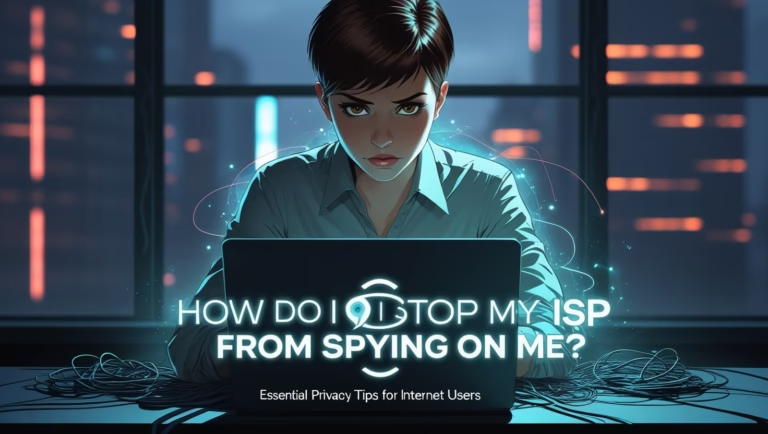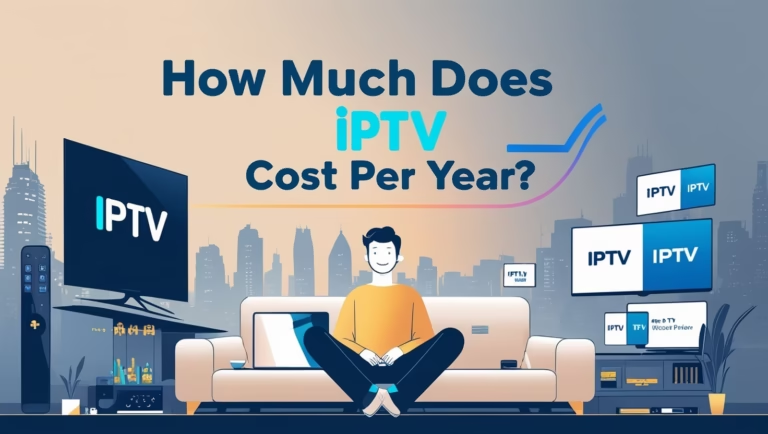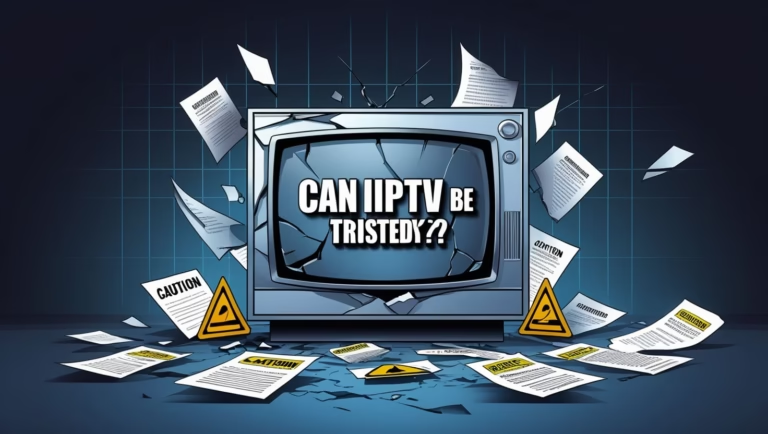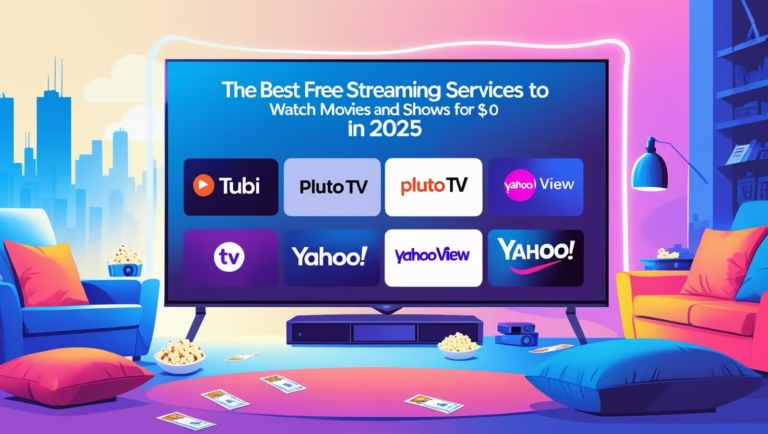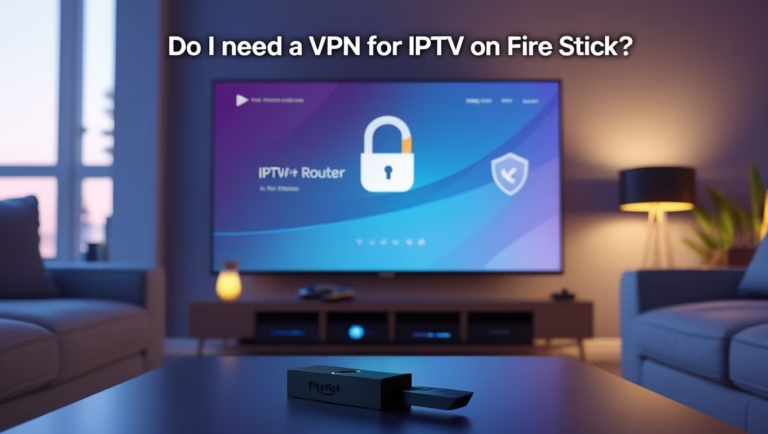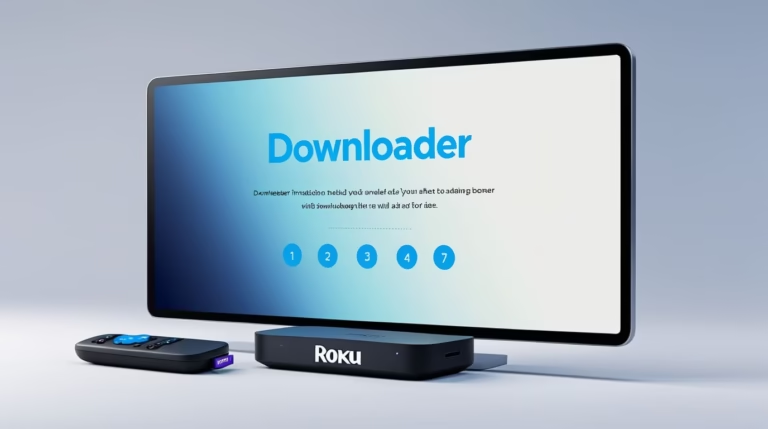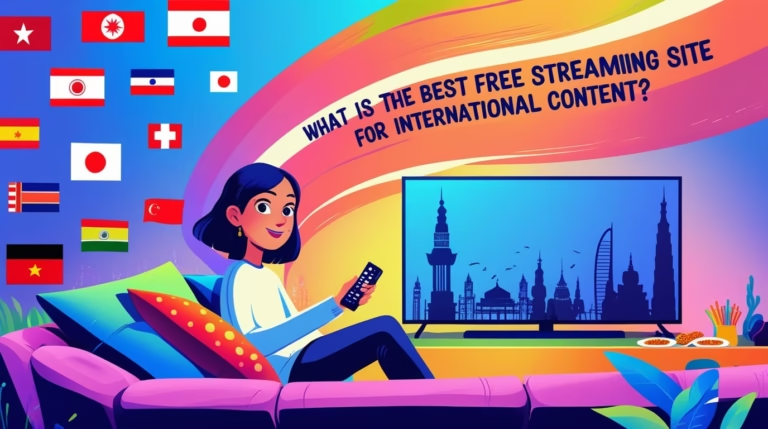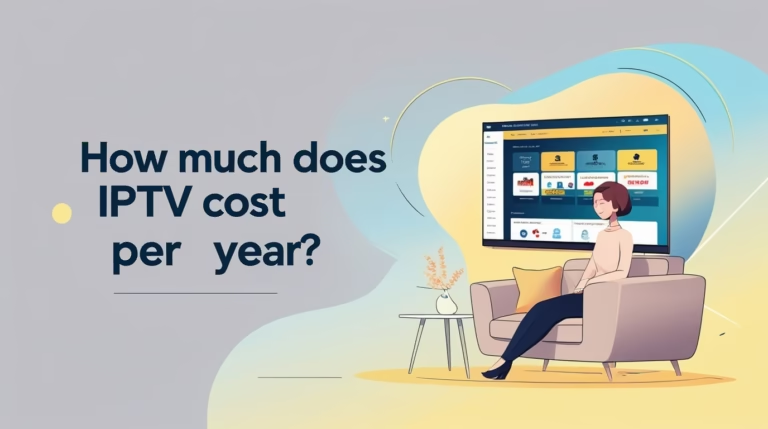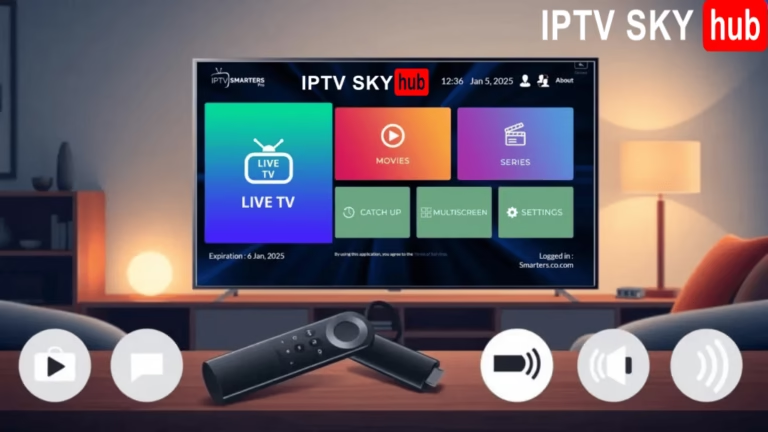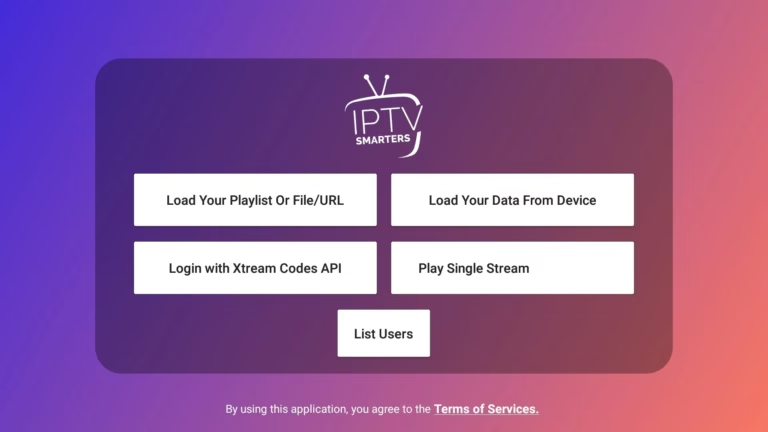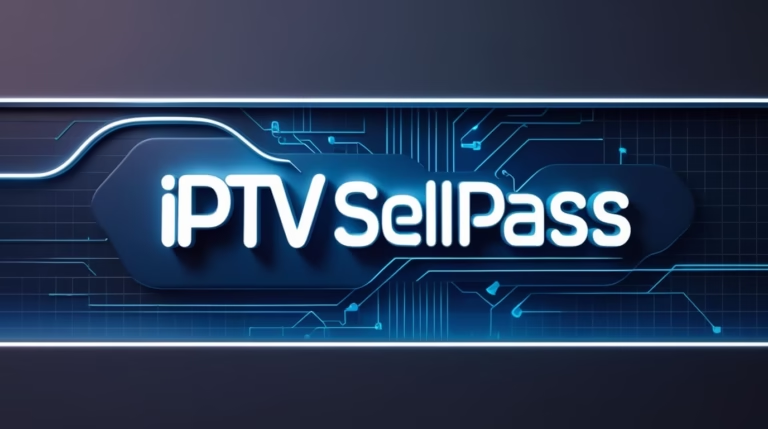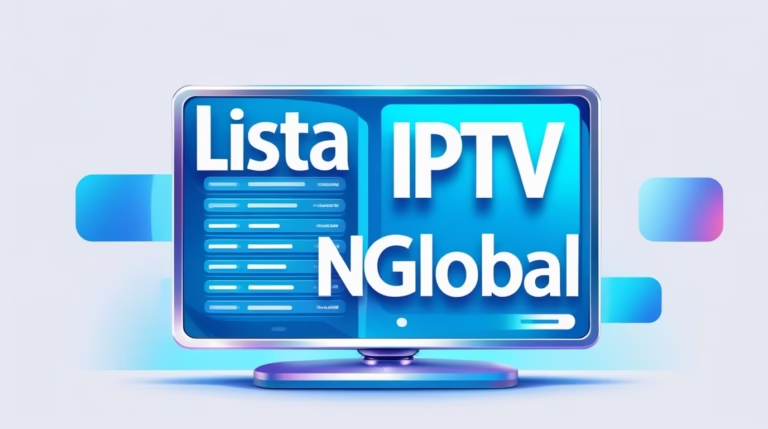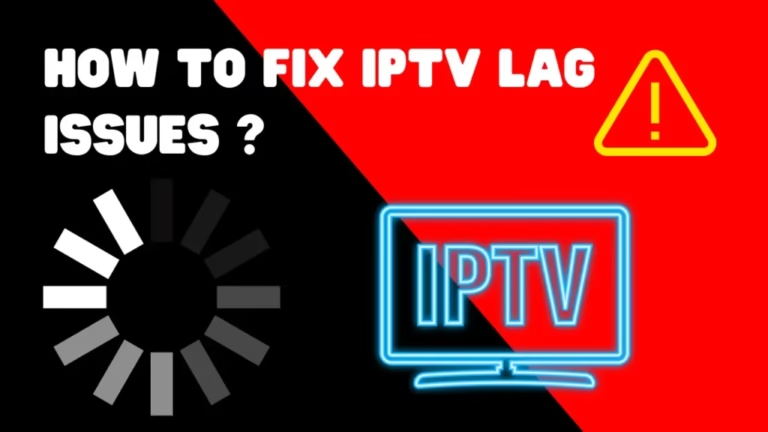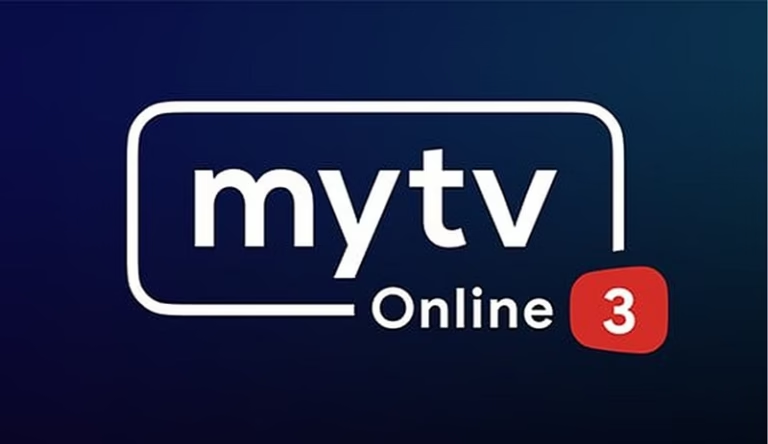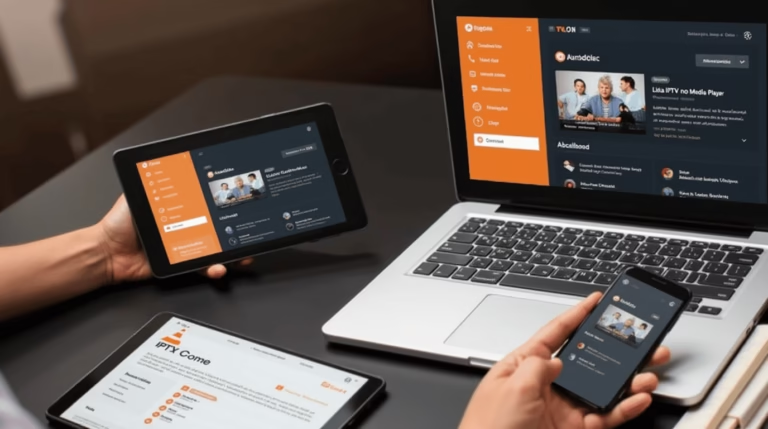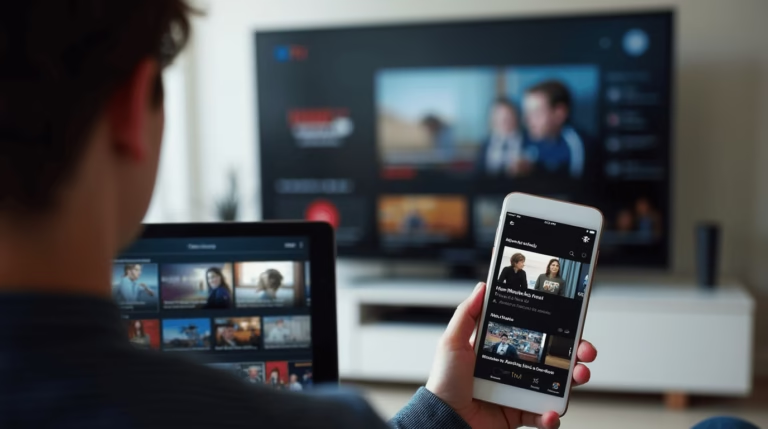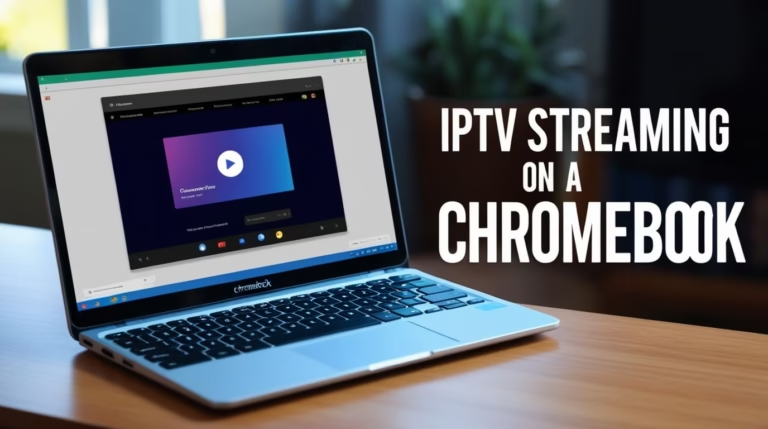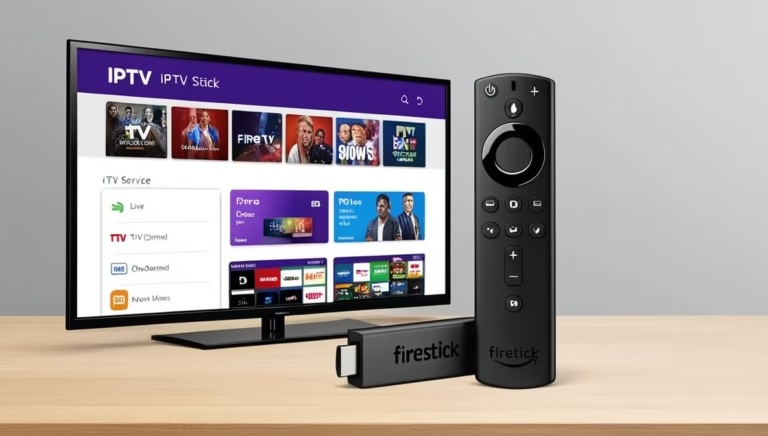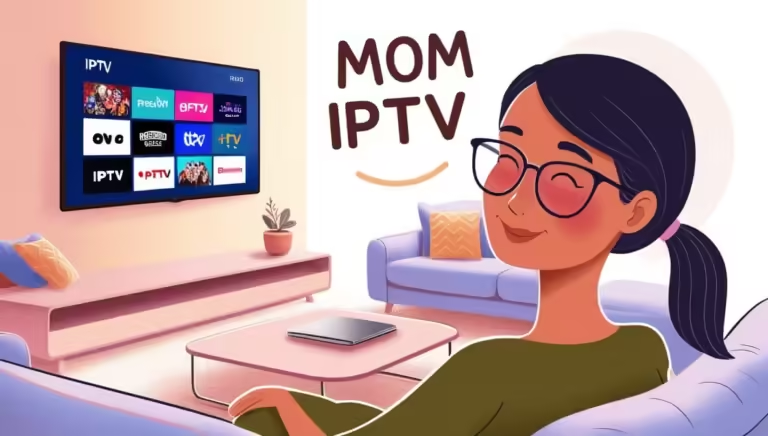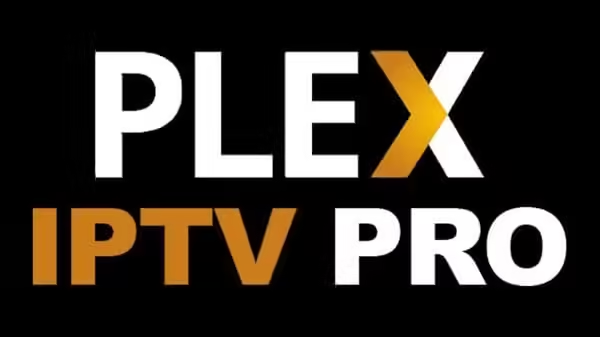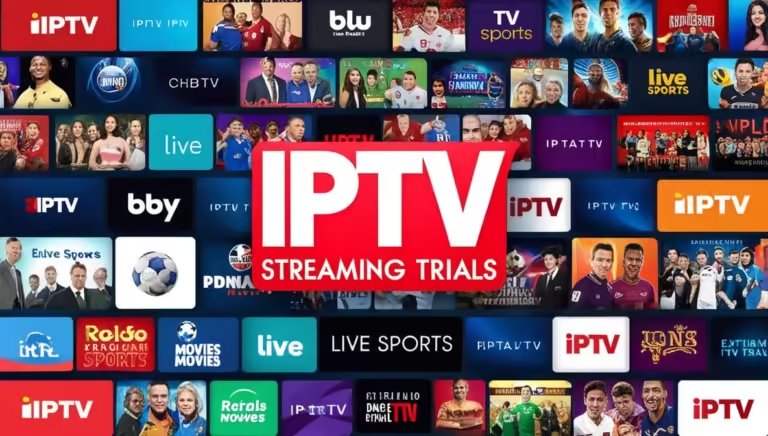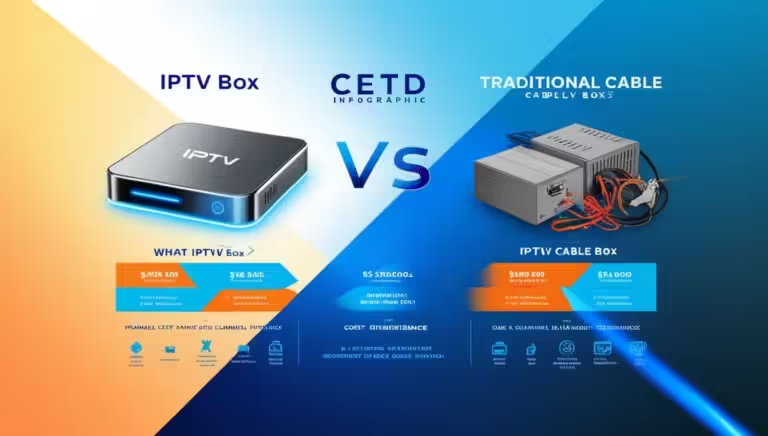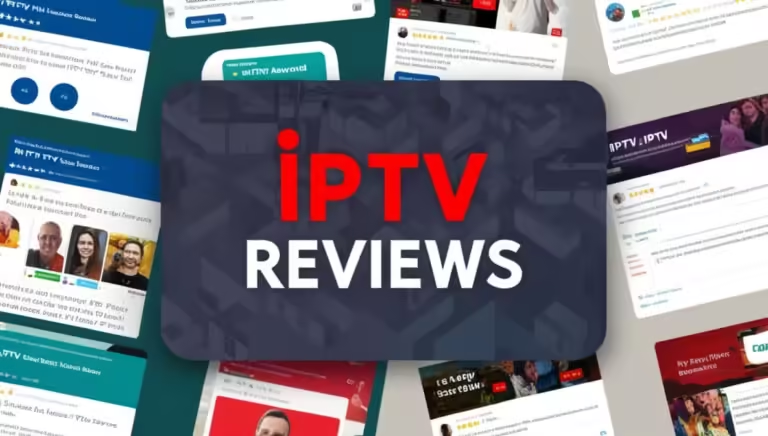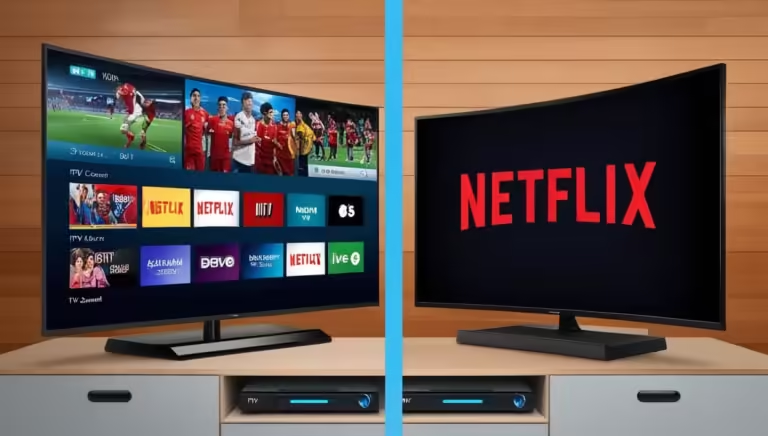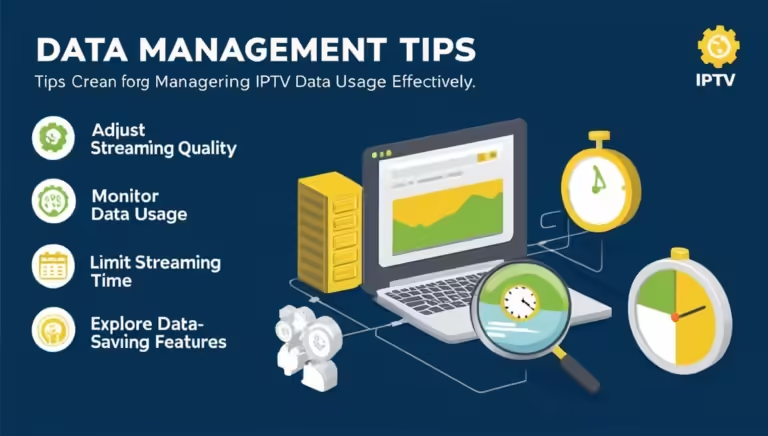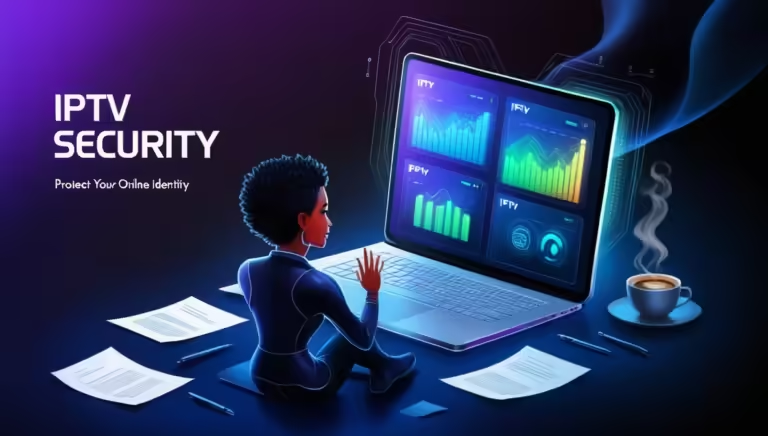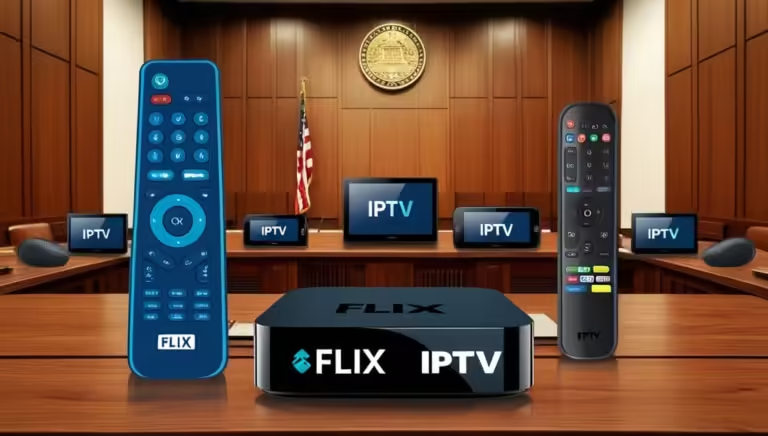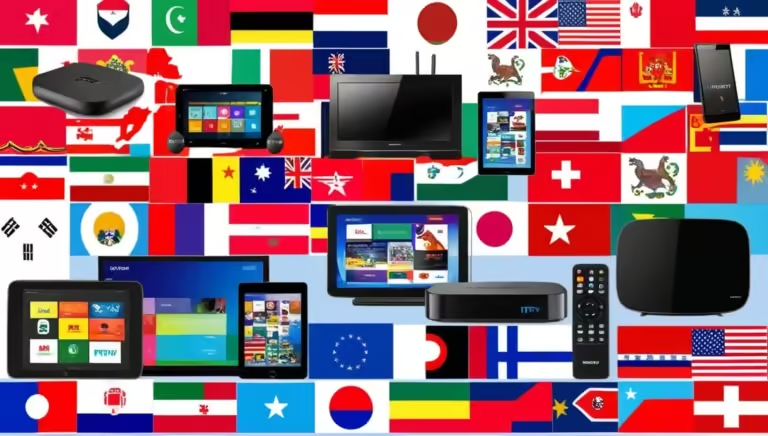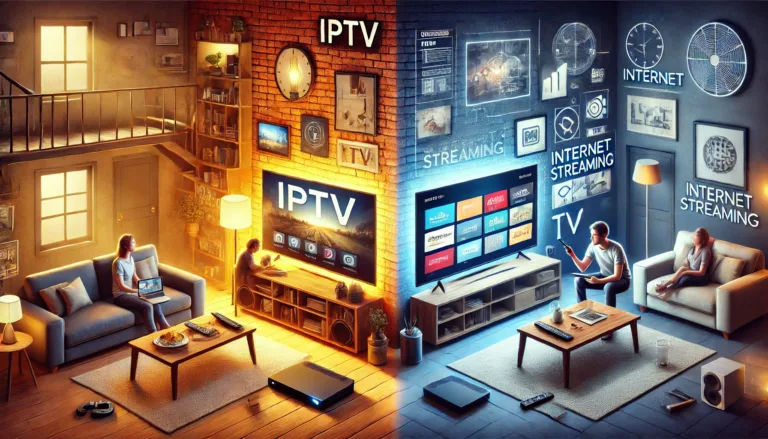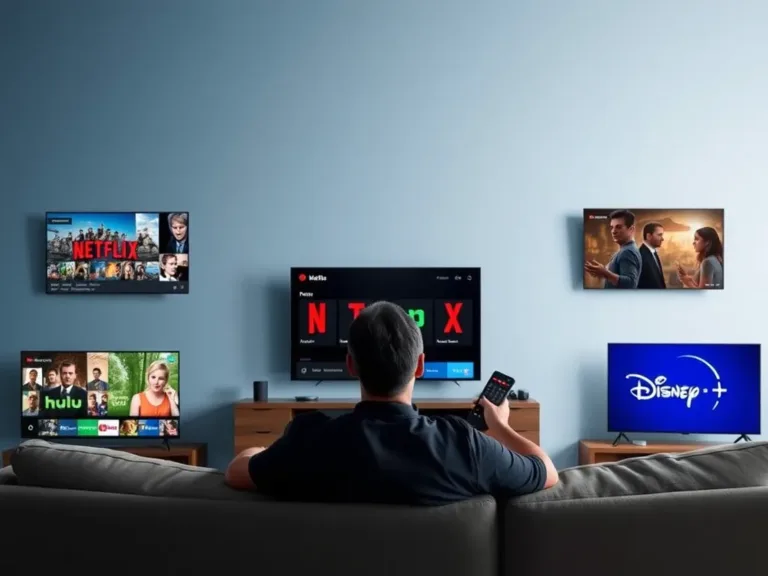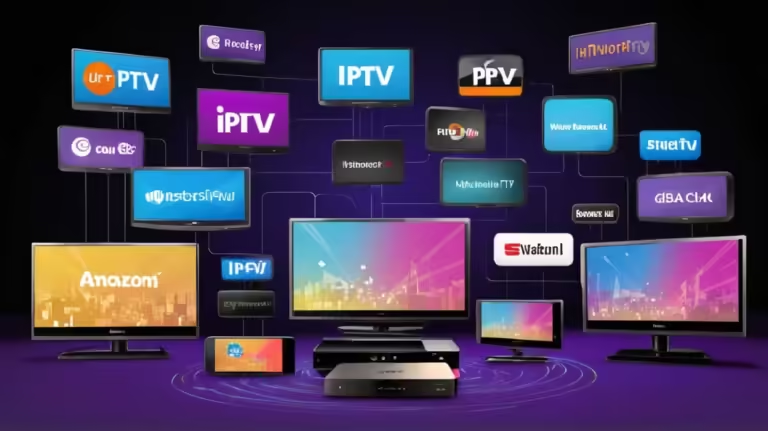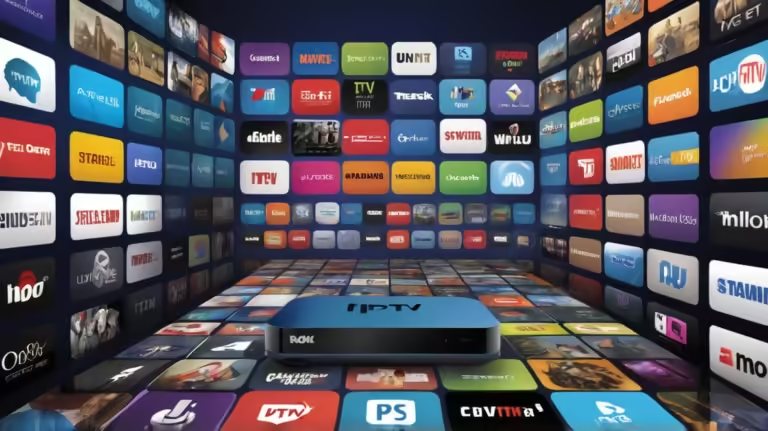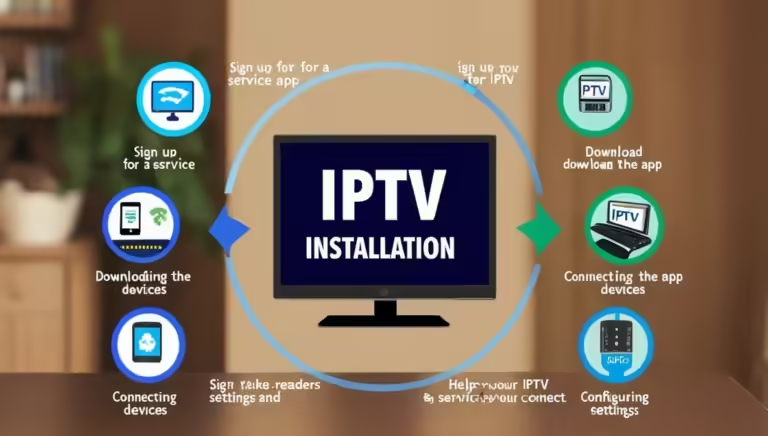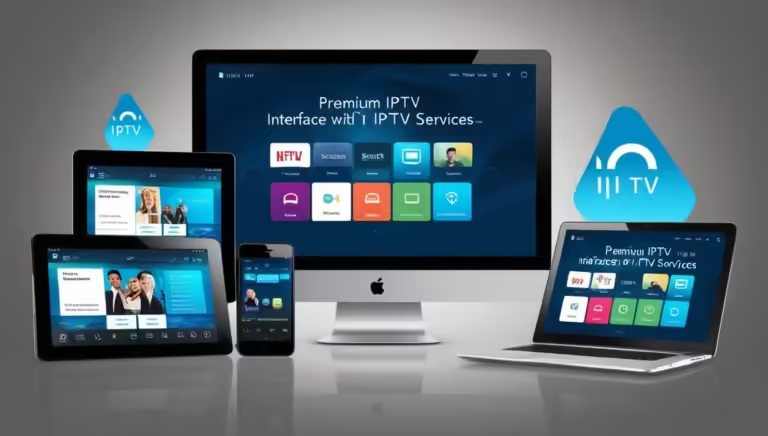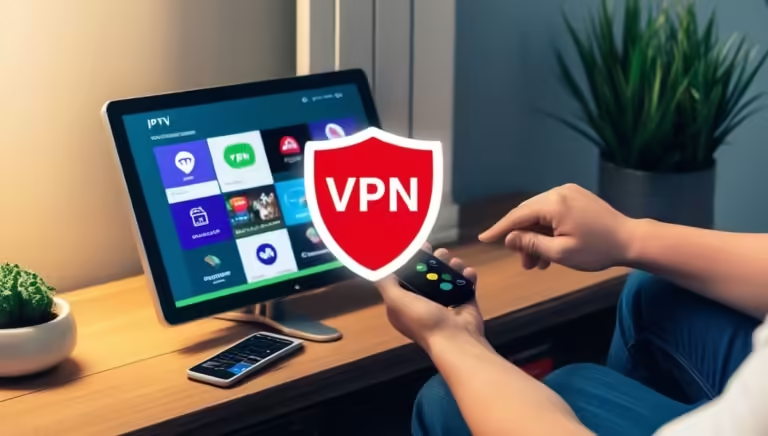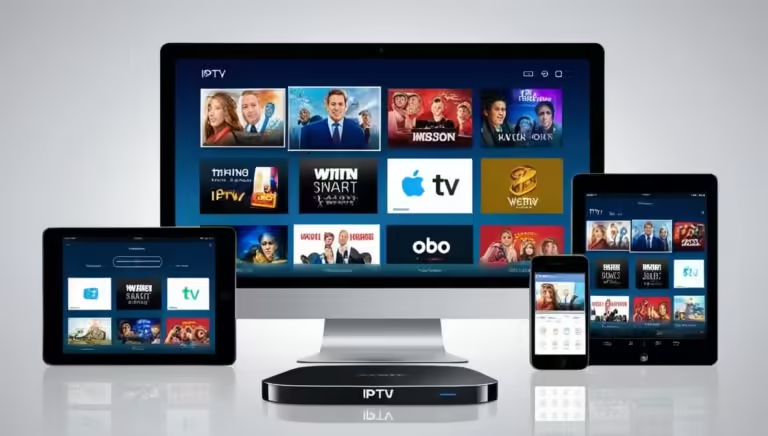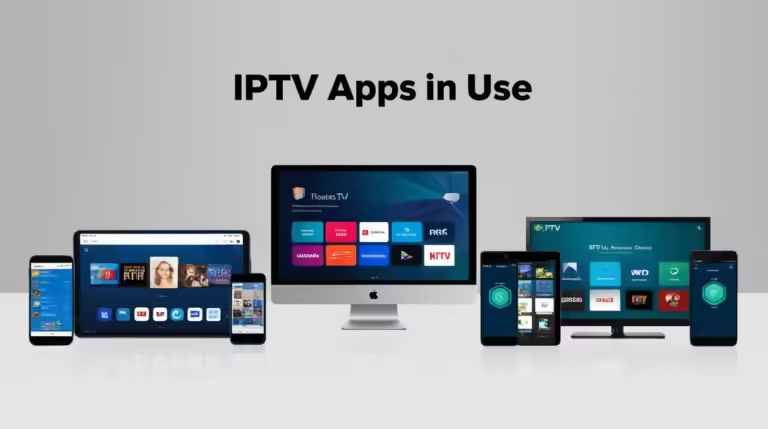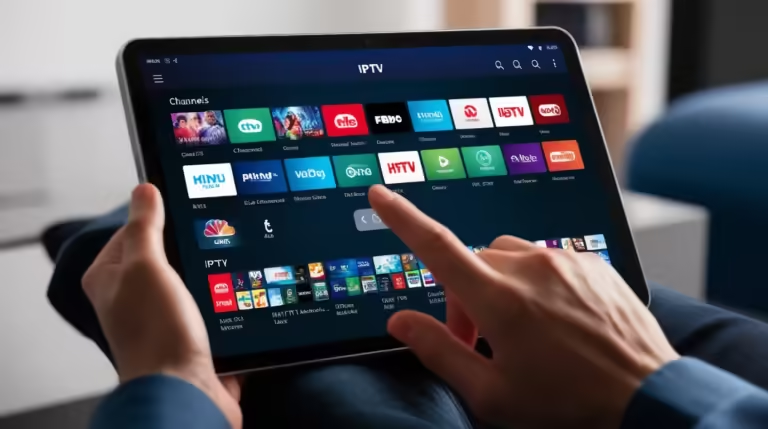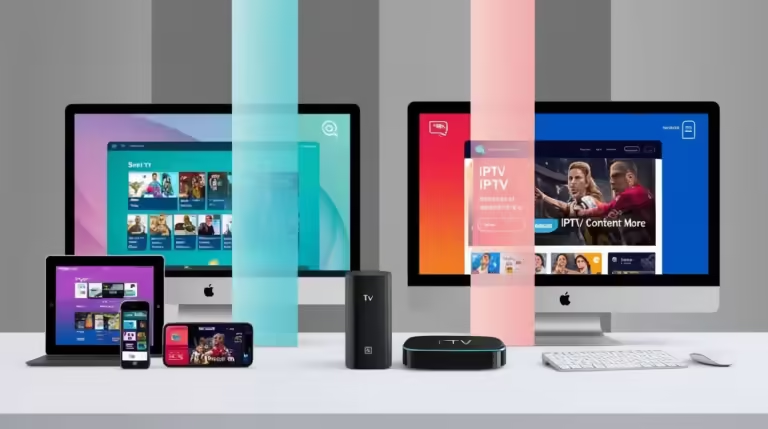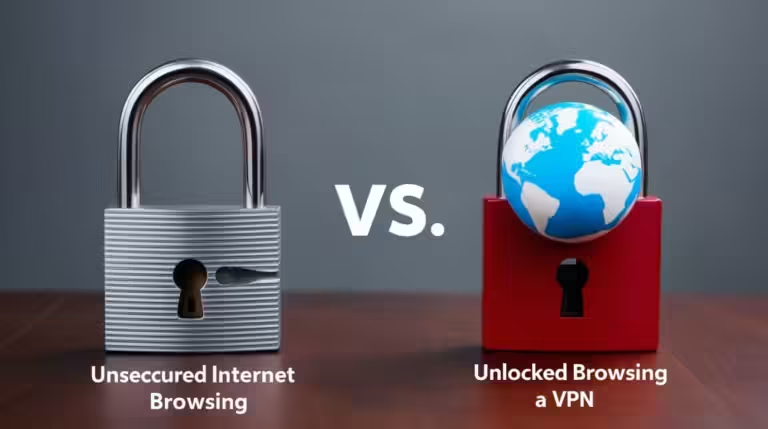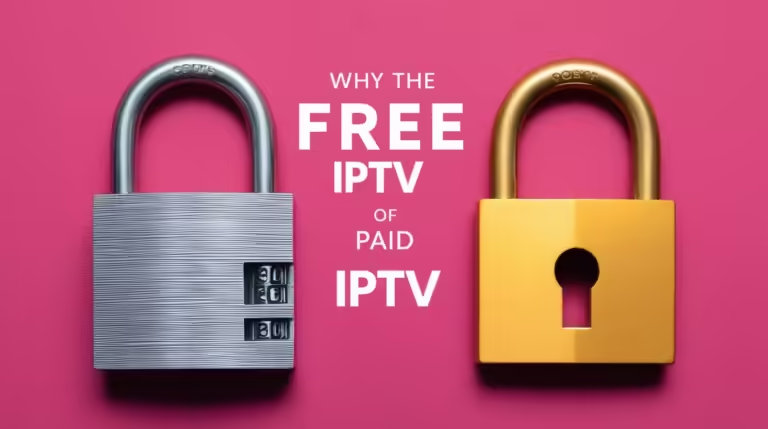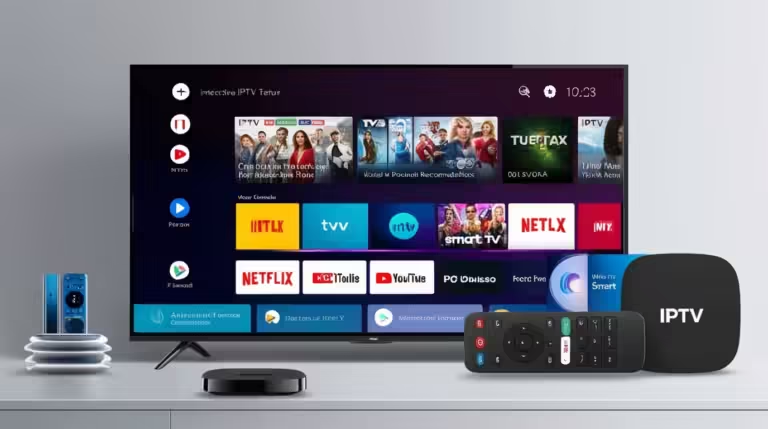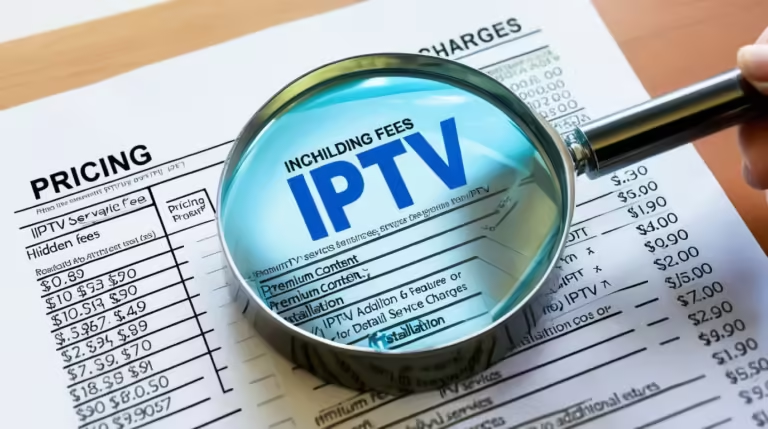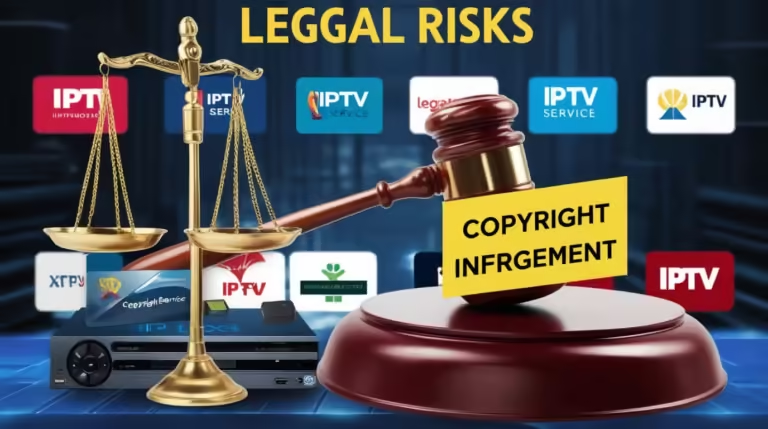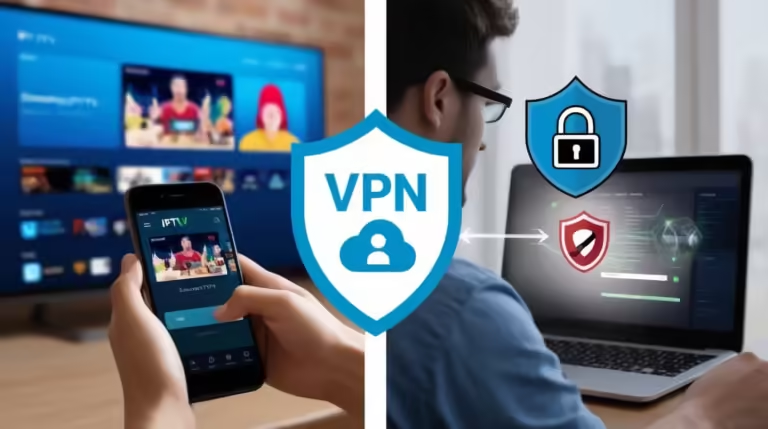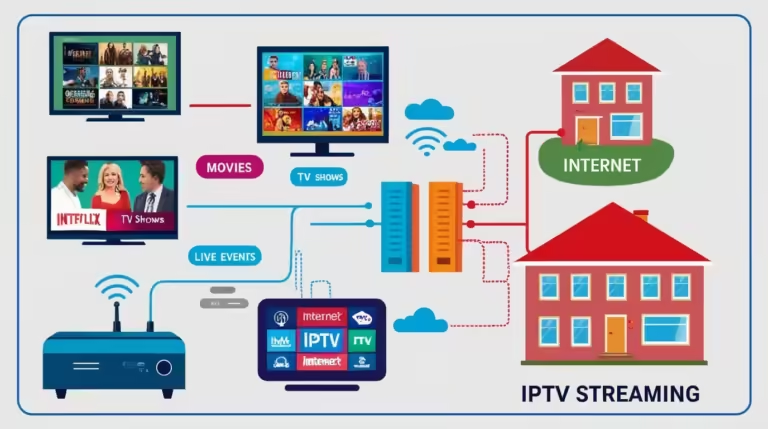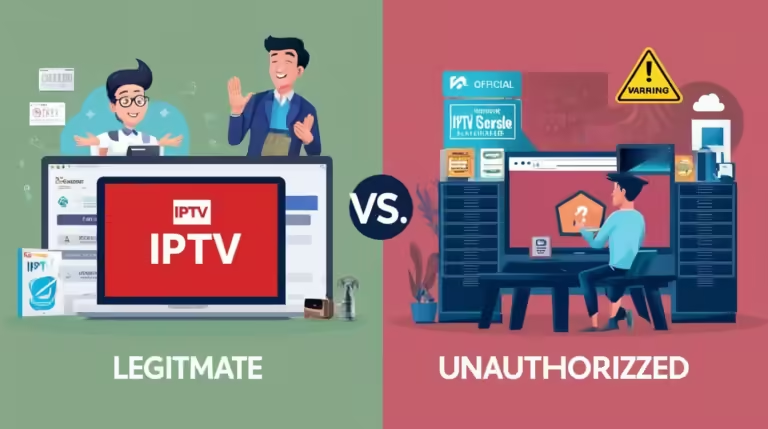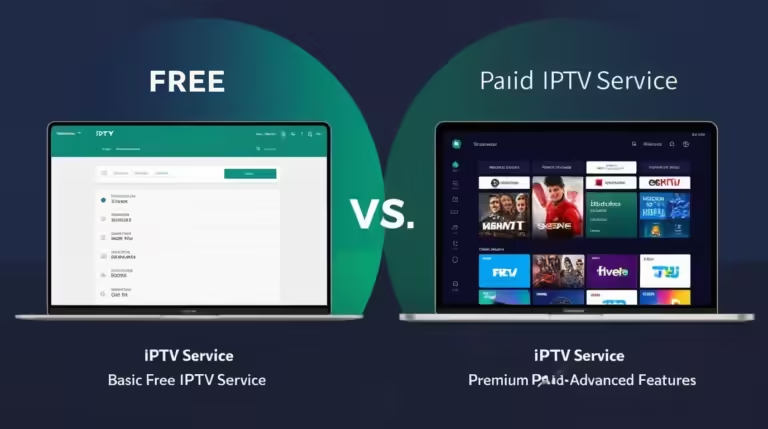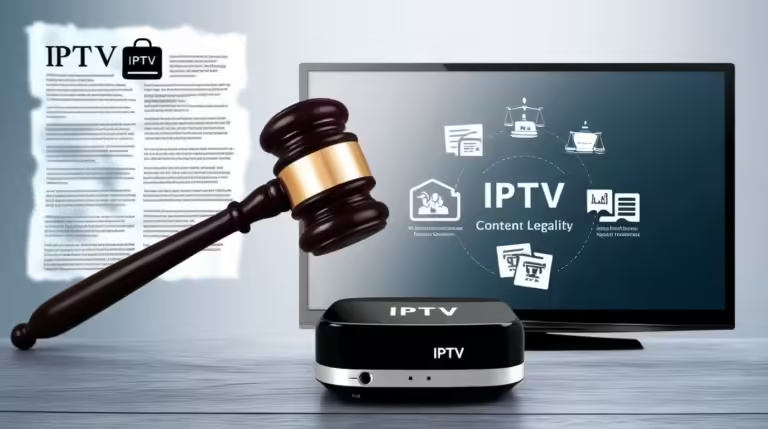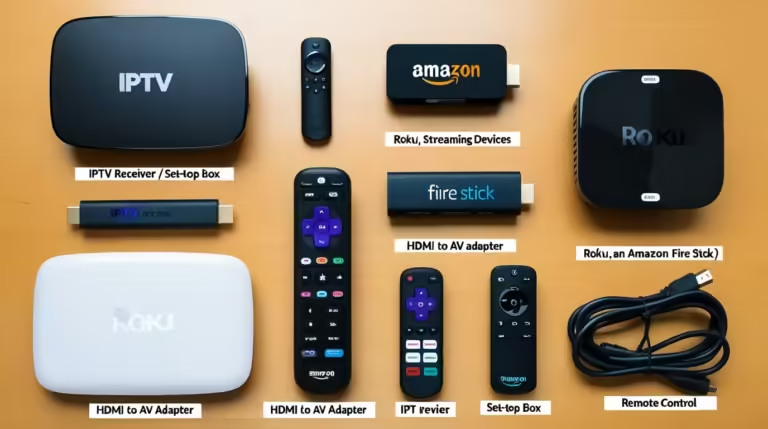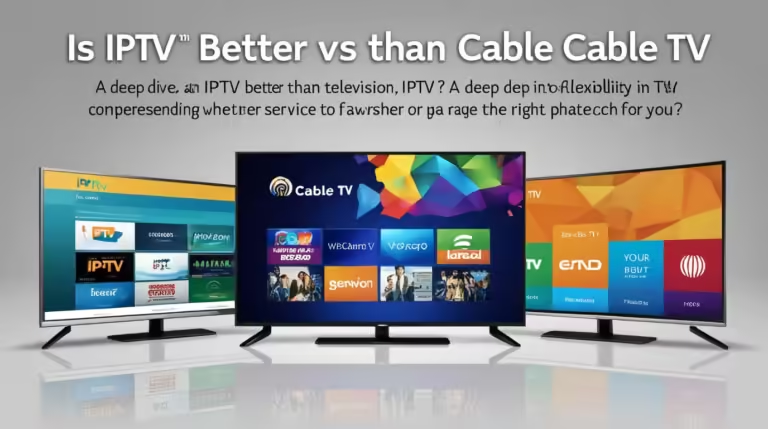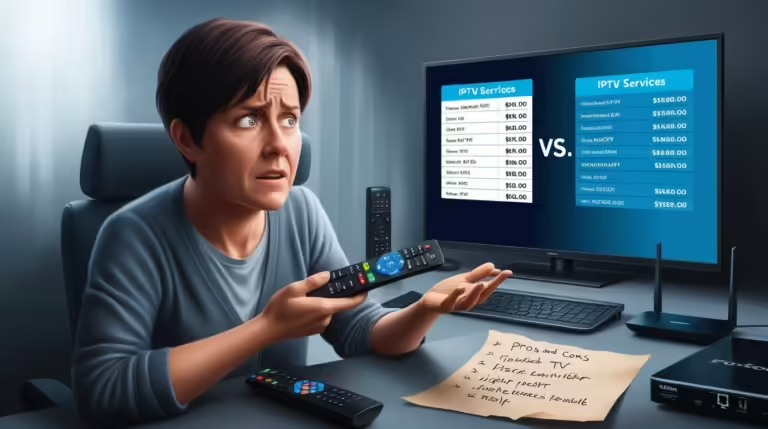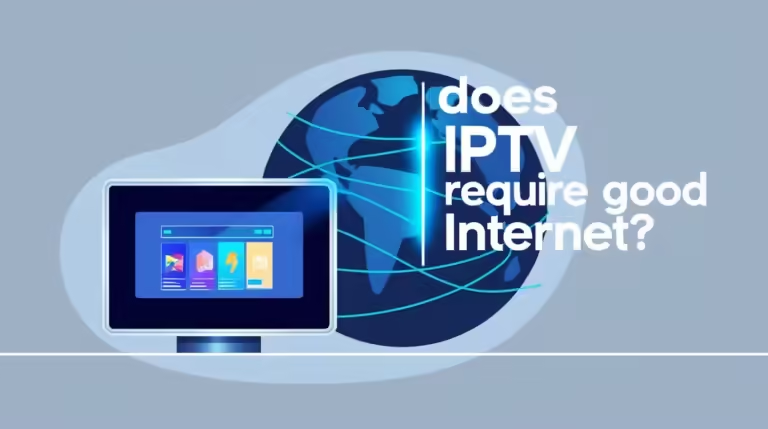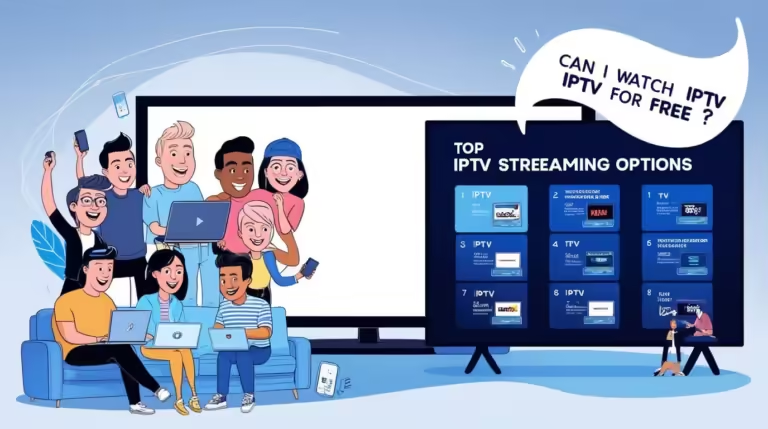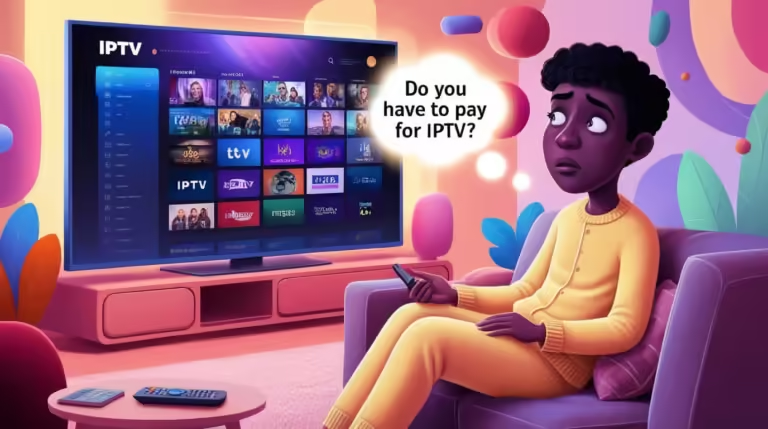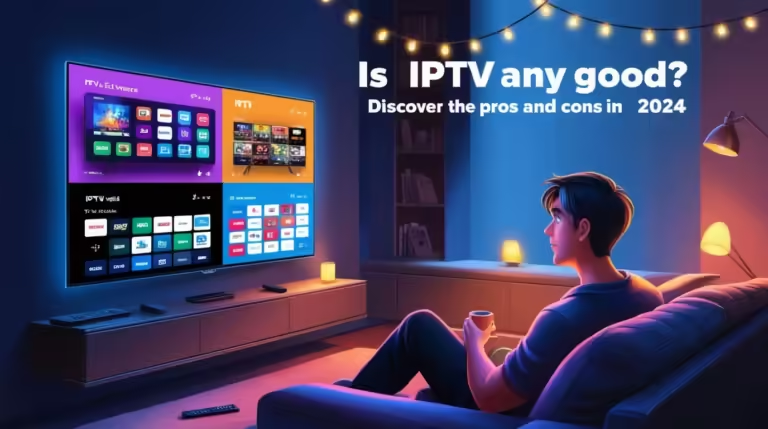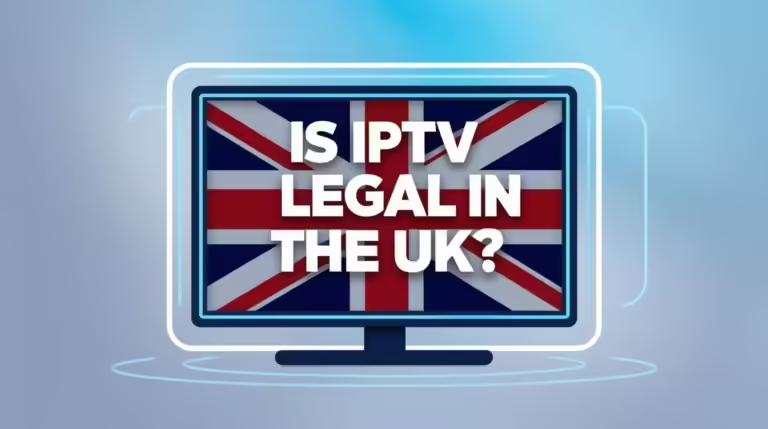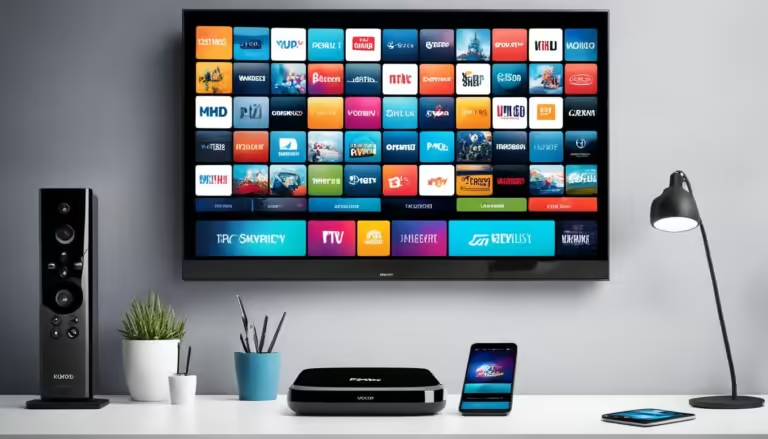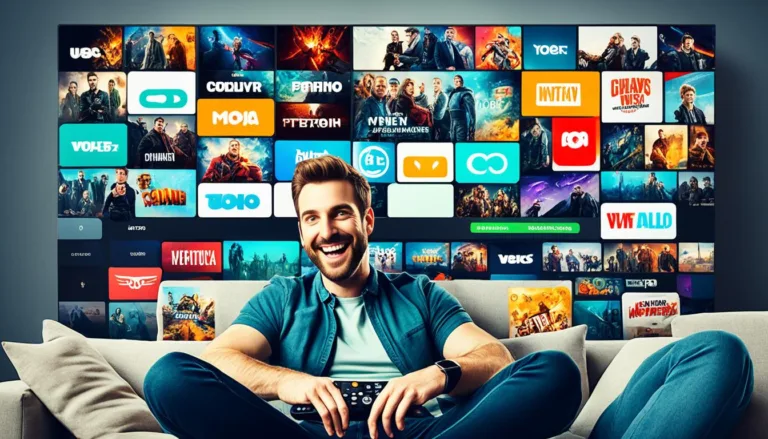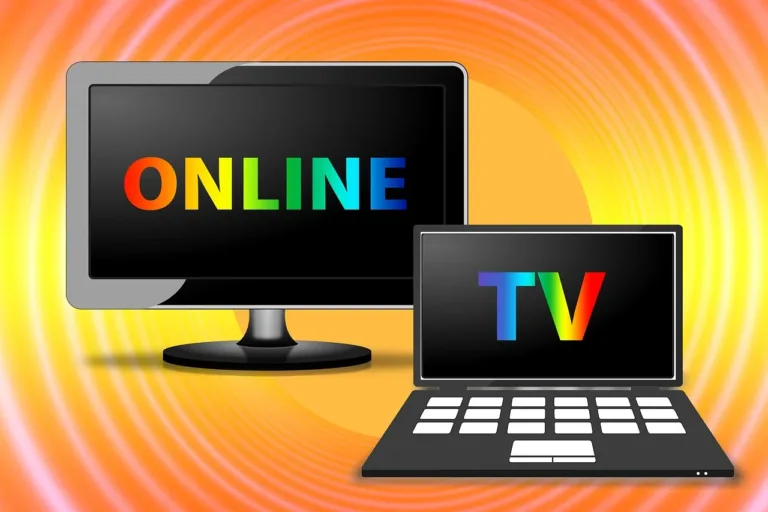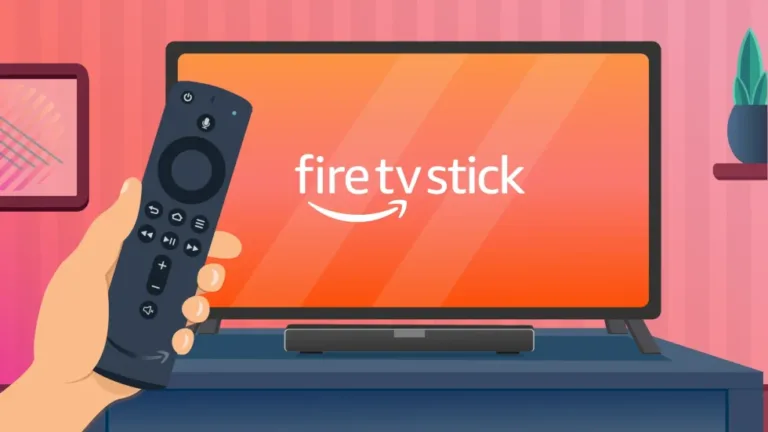Internet Protocol Television (IPTV) has become a disruptive force in the media and entertainment industry, providing users with on-demand access to a vast range of content without relying on traditional cable or satellite systems. While IPTV can be a legitimate way to consume digital media, it’s often associated with unauthorized or pirated content, leading to growing concern from governments, regulatory bodies, and internet service providers. This article explores in-depth: what are the consequences of using IPTV?
Understanding the implications is vital for users who may be unknowingly or knowingly accessing illegal IPTV services. From copyright infringement to potential cybersecurity threats and legal ramifications, this guide offers a comprehensive breakdown of the key legal risks involved.
Table of Contents

What Are the Consequences of Using IPTV Under Current Copyright Laws
To grasp what are the consequences of using IPTV, one must first understand the legal framework surrounding digital content. Copyright law is at the heart of the IPTV legality debate. When a user streams or downloads media from an unauthorized IPTV provider, they may be infringing on the rights of content creators, broadcasters, and distributors.
Under U.S. law (Title 17 of the U.S. Code), and similarly strict statutes in the EU, UK, and Canada, distributing or accessing copyrighted content without permission constitutes copyright infringement. Penalties can range from civil lawsuits to criminal charges. For example, in the United States, violators may face fines of up to $150,000 per infringement and even jail time under the Digital Millennium Copyright Act (DMCA).
Additionally, content providers and copyright holders have become increasingly aggressive in protecting their intellectual property. Many have launched lawsuits not only against IPTV operators but also against individual users. Courts have ruled that streaming pirated content is tantamount to downloading, putting users at risk of legal action.
The laws continue to evolve with the digital landscape. The EU’s Article 17 of the Copyright Directive, for instance, holds platforms more accountable for copyrighted content. This creates additional enforcement mechanisms that can track and penalize unauthorized IPTV usage more easily.
In summary, what are the consequences of using IPTV under copyright law? Potentially severe fines, criminal charges, and being held liable for intellectual property theft. Ignorance of the source of content is not a strong legal defense.

What Are the Consequences of Using IPTV on Your Legal Record
Many consumers don’t consider the lasting impact IPTV-related offenses can have on their personal records. What are the consequences of using IPTV when it comes to your legal history? If prosecuted, the results can be damaging and long-term.
Being found guilty of accessing or distributing illegal IPTV content could lead to a criminal record, especially in jurisdictions where such actions are classified as criminal copyright infringement. Having a criminal record can have profound implications on employment prospects, visa applications, and your ability to obtain professional licenses.
Employers increasingly conduct background checks that include online behavior and digital infractions. A conviction, even a misdemeanor, can deter potential employers and affect your career growth. For students and young professionals, the consequences could be even more severe, potentially impacting scholarship eligibility or college admissions.
Moreover, repeat offenders face heightened scrutiny and harsher penalties. Some regions even classify IPTV violations under anti-organized crime laws, especially when linked to subscription-based illegal services. In such cases, the offense may escalate to a felony.
In conclusion, what are the consequences of using IPTV on your legal record? A moment of convenience can result in a permanent legal blemish that follows you across multiple aspects of life.
What Are the Consequences of Using IPTV If You’re Caught by ISPs or Authorities
Internet Service Providers (ISPs) and government authorities have intensified their surveillance of illegal IPTV usage. So, what are the consequences of using IPTV if you’re caught? The repercussions can be swift and multifaceted.
ISPs often collaborate with regulatory authorities to monitor IP traffic. When suspicious activity is detected—such as accessing known illegal IPTV domains—users may receive warning letters, service suspensions, or in some cases, be reported to law enforcement.
In the UK, the “Get It Right from a Genuine Site” campaign sends educational warning letters to offenders. In the U.S., copyright trolls monitor peer-to-peer streaming and issue settlement demands. Some users have been asked to pay thousands of dollars to avoid litigation.
More seriously, in countries like Germany and Italy, users have been fined for merely streaming unauthorized content. Enforcement technology, such as watermarking and server-side monitoring, now enables authorities to identify individual users more effectively.
If law enforcement agencies become involved, users could face home searches, device confiscation, or charges under anti-piracy laws. In some cases, even using a VPN doesn’t guarantee anonymity, especially if the VPN provider complies with legal requests for user data.
Therefore, what are the consequences of using IPTV if you’re caught? Beyond monetary fines, users risk losing internet access, facing legal proceedings, and experiencing reputational damage.

What Are the Consequences of Using IPTV for Personal Data Security
Another dimension to consider is cybersecurity. What are the consequences of using IPTV in terms of personal data? Many users overlook the risks of giving their private information to unverified IPTV services.
Illegal IPTV platforms often lack proper encryption, leaving users vulnerable to data breaches, malware infections, and phishing attacks. By inputting credit card information or email addresses, users may unknowingly hand their data over to cybercriminals.
These platforms can act as a conduit for spyware, ransomware, and keyloggers. Once installed on a user’s device, these programs can harvest banking information, login credentials, and sensitive files. In 2023, a Europol report confirmed that many IPTV services were tied to organized cybercrime rings.
Even legitimate-looking IPTV apps may request excessive permissions or redirect users to malicious ads. The lack of oversight in these services means no accountability if your information is compromised. Furthermore, users who access IPTV through jailbroken devices or third-party media players increase their exposure to such threats.
If data breaches occur, victims may face identity theft, financial fraud, and long-term reputational harm. Recovering from such breaches can be costly and time-consuming.
Thus, what are the consequences of using IPTV for data security? A single decision could compromise your digital safety and leave you exposed to various forms of cybercrime.
What Are the Consequences of Using IPTV in the Evolving Digital Media Landscape
Finally, let’s consider the broader context. What are the consequences of using IPTV in the ever-changing media landscape? Beyond individual risks, the use of unauthorized IPTV services undermines the entire digital content ecosystem.
By supporting pirated IPTV platforms, users indirectly hurt content creators, production studios, and legitimate streaming services. The economic losses incurred by piracy affect job markets, reduce funding for creative projects, and hinder innovation.
Moreover, as streaming becomes the dominant mode of media consumption, governments and corporations are doubling down on digital rights enforcement. This includes AI-driven content detection, real-time takedown systems, and international cooperation through treaties like the Anti-Counterfeiting Trade Agreement (ACTA).
Major platforms like Netflix, Amazon, and Disney+ are also investing in anti-piracy technologies, and cooperating with law enforcement to crack down on unauthorized distribution. Consumers who continue to use illegal IPTV services will increasingly find themselves in a shrinking safe zone.
As digital rights management (DRM) becomes more sophisticated, even casual use of IPTV can lead to detection and penalties. Meanwhile, legal streaming alternatives continue to expand, offering better quality, reliability, and safety.
In essence, what are the consequences of using IPTV in the modern digital age? It contributes to the erosion of a fair and sustainable media environment, while putting users at greater legal and technological risk.
Conclusion
So, what are the consequences of using IPTV? This is no longer a question that can be brushed aside. With the rapid growth of digital content consumption and the increasing reliance on streaming services, the use of IPTV—especially illegal or unverified services—has become a topic of serious concern. The risks involved extend far beyond simply watching unauthorized content. Users may unknowingly find themselves in violation of strict copyright laws, which can lead to legal action, hefty fines, or even criminal charges depending on the jurisdiction.
As digital ecosystems evolve, so too does enforcement. The tolerance for illegal streaming is diminishing as rights holders, regulatory agencies, and technology providers invest more resources into detection and prevention efforts. What once may have seemed like a low-risk, convenient workaround is now a gateway to serious consequences.
For individuals who value their privacy, security, and legal standing, the message is increasingly clear: the use of unverified or pirated IPTV services is a gamble with high stakes. Consumers need to be proactive in understanding the risks and should be encouraged to explore legal, reputable streaming platforms that support creators and content providers. While the appeal of free or cheaper alternatives may be tempting, the long-term consequences—both legal and personal—simply aren’t worth it.
Stay informed, stay secure, and above all, stream responsibly. Making ethical choices in the digital world not only protects you but also supports a healthier, fairer media ecosystem for everyone.

